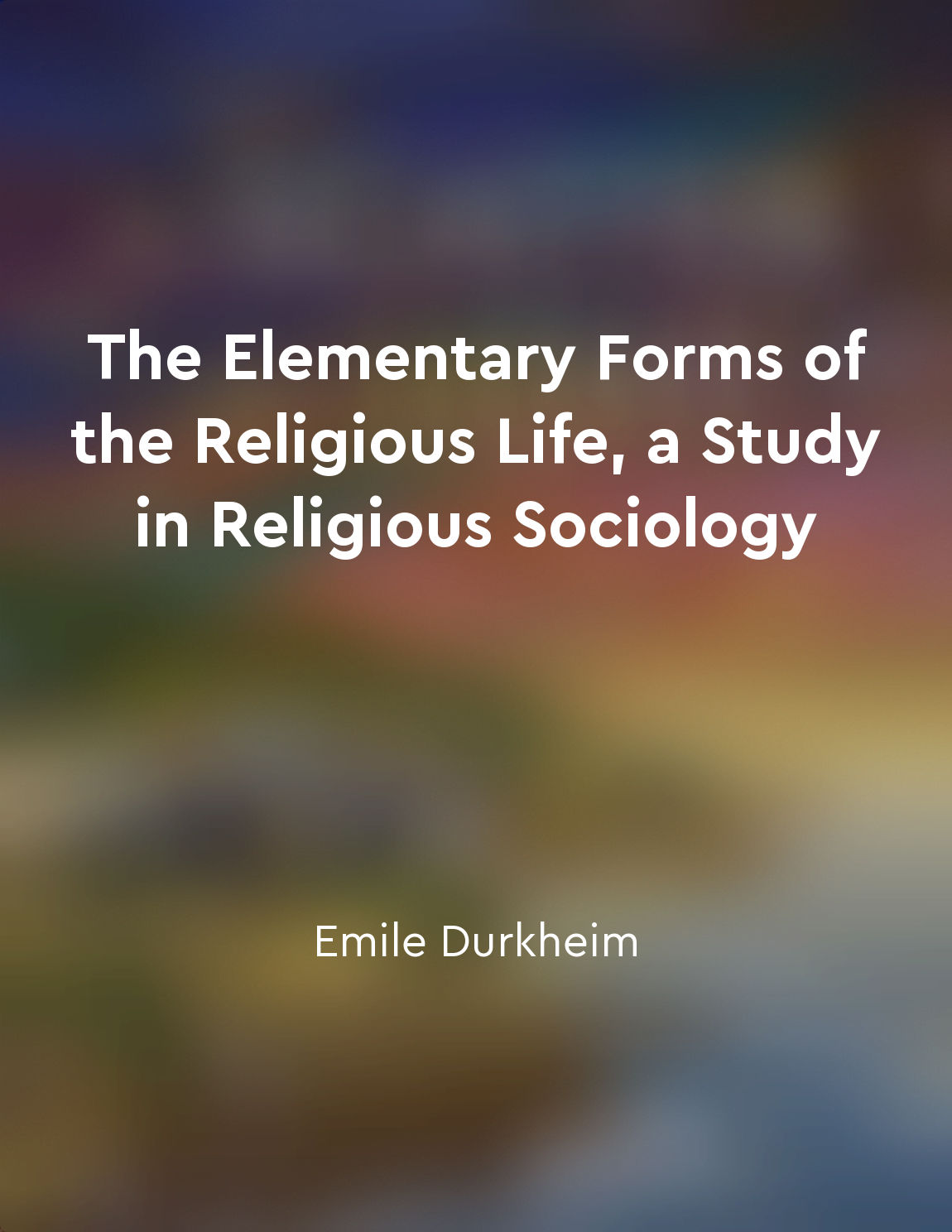Society shapes religious practices from "summary" of The Elementary Forms of the Religious Life, a Study in Religious Sociology by Emile Durkheim
The relationship between society and religious practices is a fundamental aspect of human life. Society provides the framework within which religious beliefs and rituals are constructed and carried out. The collective beliefs and values of a society shape the way individuals understand and engage with the sacred. Religious practices are not simply individual expressions of faith, but are deeply embedded in the social structures and norms of a community. These practices serve to reinforce social cohesion and solidarity by creating a shared sense of identity and purpose among members of a group. The rituals and ceremonies that form the basis of religious life are not arbitrary or random, but are determined by the needs and values of the society in which they are practiced. These practices serve to regulate social behavior, establish social hierarchies, and reinforce social norms. In this way, religion becomes a reflection of the collective consciousness of a society, embodying its moral code, social organization, and cultural identity. Through religious practices, individuals are able to connect with something greater than themselves and find meaning and purpose in their lives. At the same time, religious practices also serve to maintain and perpetuate the existing social order, by reinforcing the authority of religious leaders, legitimizing political power, and justifying social inequalities. By shaping religious beliefs and rituals, society is able to regulate and control the behavior of its members, ensuring that they conform to the norms and values of the group.- The relationship between society and religious practices is a complex and multifaceted one, with each influencing and shaping the other in profound ways. Religion serves as a powerful force for social cohesion and solidarity, while also reflecting and reinforcing the values and norms of a society. By understanding this dynamic relationship, we can gain insight into the role that religion plays in shaping the social world in which we live.


